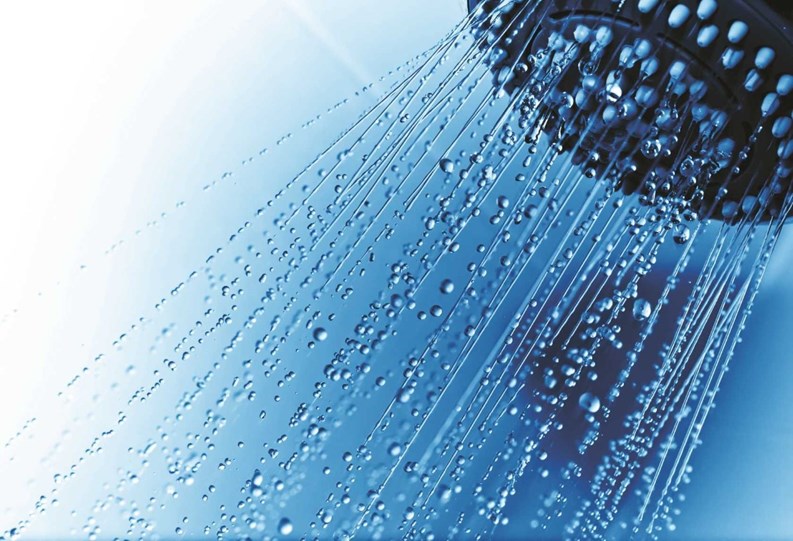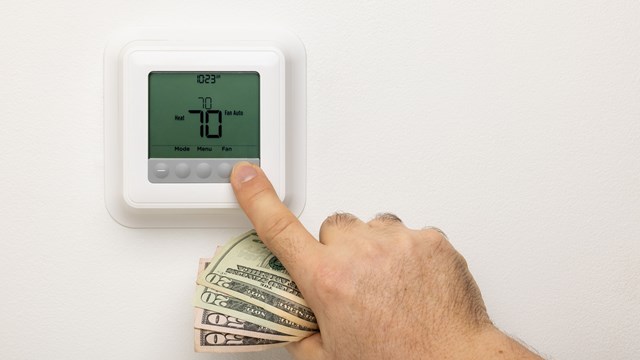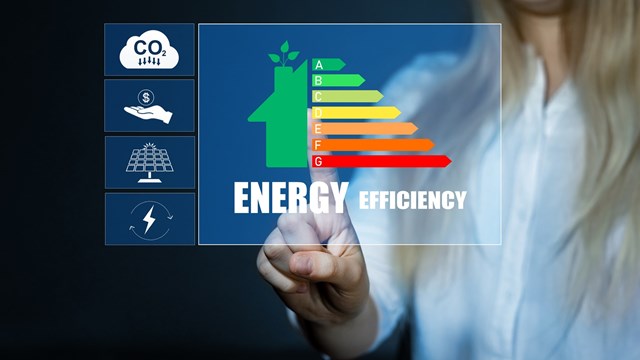With the green movement in full swing across the country, it is not surprising that incorporating energy saving and efficient measures has trickled into condominium development. Today, many buildings in New Jersey pride themselves for having a variety of eco-friendly features ranging from green roofs, the use of sustainable materials and recycling on-site.
While not all residential condominium buildings are built green from scratch, there are numerous national and state wide energy efficiency, energy conservation and sustainability-encouraging programs available to property managers and residents of condos and co-ops in New Jersey. These programs often offer generous rebates and financial incentives to help offset the initial costs of implementing the green products and technologies and doing so can greatly ease the burden of large utility bills.
National and State Incentives
The federal government offers many programs and incentives that encourage energy efficiency while simultaneously expanding opportunities for home ownership. One such program is the 203(k) program which is administered through the Federal Housing Administration (FHA), which is part of the Department of Housing and Urban Development (HUD). The program is not for existing homes but rather for individuals who are looking to buy a home. Unlike single family homes, however, the program has certain specifications for condominium units including rehabilitation that is limited to the interior of the unit only and only the lesser of five units per condominium association, or 25 percent of the total number of units, can be undergoing rehabilitation at any one time, according to the HUD website. All projects must be approved by the FHA. Additional information can be found on the HUD's website: http://portal.hud.gov/hudportal/HUD?src=/program_offices/housing/sfh/203k/203ka bou.
Federal tax credits are also available to residents who have qualifying energy efficient products. “Consumers can use an Energy Star search engine for special offers or rebates locally
available,” says Dale Kemery, press officer at the U.S. Environmental Protection Agency (EPA) in Washington D.C. “Not all Energy Star qualified products qualify for a tax credit, but there are tax credits in effect through 2016 on geothermal heat pumps, solar panels, solar water heaters, small wind energy systems, and fuel cells.”
Energy Star is a joint program of the EPA and the Department of Energy that labels products that are energy efficient and that can help reduce greenhouse gas emissions. “The Energy Star label can be found on products across more than 65 categories, including appliances, lighting, heating and cooling equipment and consumer electronics. Products that earn the label deliver all the features and functionality of standard products, while allowing purchasers to save energy, save money and help protect the climate,” says Kemery. He adds that a typical household spends more than $2,100 a year on energy bills but Energy Star products can produce savings of one third or about $700. More information can be found on www.energystar.gov.
Two other databases already exist to help locate funding sources:
• The Database of State Incentives for Renewables & Efficiency, www.dsireusa.org, is a project of the N.C. Solar Center and the Interstate Renewable Energy Council with funding from the U.S. Department of Energy. It is organized by state, and within each state by program type.
• The U.S. Department of Energy’s own website has a section on tax credits, rebates, and savings at http://energy.gov/savings.
On the Local Level
With hundreds of incentive programs out there, both property managers and residents of condos and co-ops are sure to find one that fits the conservation goals of their community. However, before mass purging and replacing all appliances, it is recommended that the building or unit is first assessed for efficiency. “I would always recommend the owner start with a home energy audit by a certified company to get an independent and accurate assessment on the most cost effective improvements,” suggests Jason Kliwinski, AIA, LEED, co-founder of the New Jersey Chapter of the U.S. Green Building Council. “Oftentimes residential energy efficiency needs to start with air sealing leaky building envelopes which include insulating walls, replacing or coating windows, weatherstripping doors, etc. Putting efficient equipment in a bad building is only half as effective as it could be.”
Perhaps the most comprehensive resource available to boards and individuals interested in learning more about how they can save money and conserve resources in their homes is the New Jersey Clean Energy Program (NJCEP), which offers services, programs, and financial incentives for residential, municipal and commercial customers.
New Jersey's Clean Energy Program offers programs and incentives that are available to residents living in condo and co-ops, such as the HVAC incentive programs, known as WARMAdvantage and COOLAdvantage, the Energy Star clothes washer program and Comfort Partners, says Greg Reinert, director of communications for the New Jersey Board of Public Utilities (NJBPU). “If the residents are responsible for paying their own heating and cooling bills and they do not share units with other residents, then they are eligible to receive up to $500 in incentives from the WARMAdvantage and COOLAdvantage programs.” In 2011, there were 39,960 participants for the WARMAdvantage and COOLAdvantage programs, according to Reinert.
The Energy Star clothes washer program provides residents with a $50 rebate if they upgrade to a qualifying model. “The clothes washers rebated under New Jersey's Clean Energy Program use on average 43 percent less energy and 75 percent less water than conventional models,” says Reinert.
If the association decides to upgrade all the units in a building, associations become eligible for the Comfort Partners Program, Reinert says. “It helps qualified low-income customers learn how to save energy and money. Certified Building Performance Institute (BPI) contractors install energy savings measures at no costs to make homes more energy efficient. Comfort Partners has to abide by the individual condo association rules as there are many restrictions at these properties. For example, if the program needs to vent a bath exhaust fan through the roof, the condo owner must get permission from the association; some associations forbid touching the roof,” he says. More information can be found on the website: http://www.njcleanenergy.com/
Kliwinski adds that all grants and incentives are on a first come, first serve basis, while funds are available. This is the best time to take advantage of the programs because the financial benefits are greatest. “Early adopters are the ones that will ultimately save the most upfront and over the long term. At some point, the incentives will go away and the energy-efficiency needs may become a requirement via code, zoning or other regulations in the state,” he says.
Legislation to Go Green
As the benefits of going green are becoming more apparent, state and national governments are continuing to pass legislation to encourage the use of alternative energy sources and other eco-friendly products and methods.
Currently, it is difficult for individual units to install their own solar panels or alternative energy sources that benefit the unit alone. But this restriction may be changing soon. “Generally speaking, individual solar and other renewable energy sources to serve units within a community, have not really gained much traction because of programmatic impediments, but this is likely to change with time as New Jersey works to make these programs available to broader types of housing,” says attorney John D. Cranmer, a partner at the law firm of Archer & Greiner, P.C in Haddonfield. “However, the New Jersey Board of Public Utilities recognizes an exception for condominium and cooperative housing. In this manner, it may be possible for associations with large vacant areas of land, suitable for installation of solar or wind generating facilities, to provide less expensive energy sources to its members through a net metering arrangement with residents. However, this can be a complex arrangement and should probably not be undertaken without the advice of an attorney who is familiar with the regulatory framework.”
Solar Energy
It's not only homeowners that are able to use the sun as an energy source-utility companies harness the sun's light as well, and may be required to do so more often. “Solar Renewable Energy Certificates (SRECs) are tradeable energy certificates that are issued to solar electricity generators and may be sold to electric suppliers that are required to invest in solar energy under New Jersey's Renewable Portfolio Standards (RPS),” explains attorney Niall O'Brien, also of Archer & Greiner. “The RPS requires electricity suppliers to purchase a certain percentage of their electricity from solar systems in New Jersey, with the requirement increasing each year. New Jersey electric suppliers can purchase the SRECs instead of buying the actual electricity. The market value of SRECs, as an accompanying benefit to generating solar energy, is one of the driving factors in the solar industry exploring new methods of using solar energy. New legislation is constantly evolving to regulate the demand for and supply of SRECs, usually through New Jersey’s Electric Discount and Energy Competition Act.”
Tax Credits
Cramner continues to say that more credits could be available through a new bill A556 which “would provide a gross individual income tax credit for vehicle (electric) charging station installed in new or existing homes, during the next three years. As proposed,
a. The credit for 2013 would be 25 percent of cost, up to $500;
b. For 2014, the credit would be 15 percent of cost, up to $300; and
c. For 2015, the credit would be 8 percent of cost, up to $150
To qualify, a unit owner would have to apply for New Jersey Department of Environmental Protection Certification to ensure that the charging station is a recognized, or qualified electric vehicle charging station,” he says.
Finally, the state's own Clean Energy program is seeking to expand its reach of rebates and incentives. “Senate Bill 1489 would mandate that any incentives made available by the Board of Public Utilities under the New Jersey Energy Star Homes Program for new residential construction be available statewide and not just within areas designated for growth in the State Development and Redevelopment Plan,” O'Brien explains.
As the green landscape continually changes, it is important for boards and residents to stay abreast of growing programs and changing legislation. Both Cranmer and O'Brien advise boards to appoint a general counsel that can stay on top of these programs and to also advertise board memberships to qualified individuals such as persons living in the community who will take responsibility for environmental and energy issues.
With a variety of green incentive programs at their disposal, residents, board members and property managers have the resources and financial support to implement eco-friendly products and policies in their association, saving money and protecting the environment.
Maggie Puniewska is an editorial assistant with The New Jersey Cooperator and other publications.







Leave a Comment